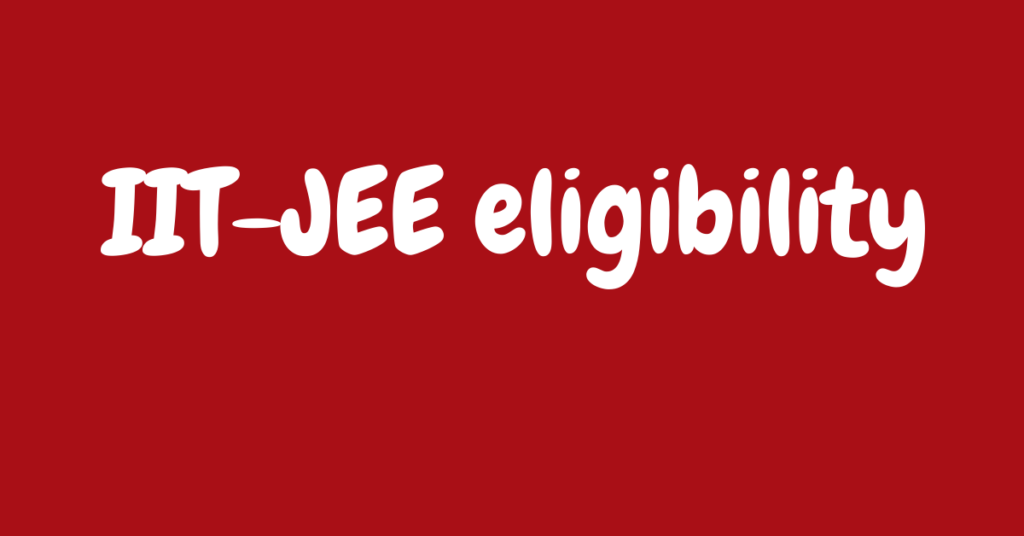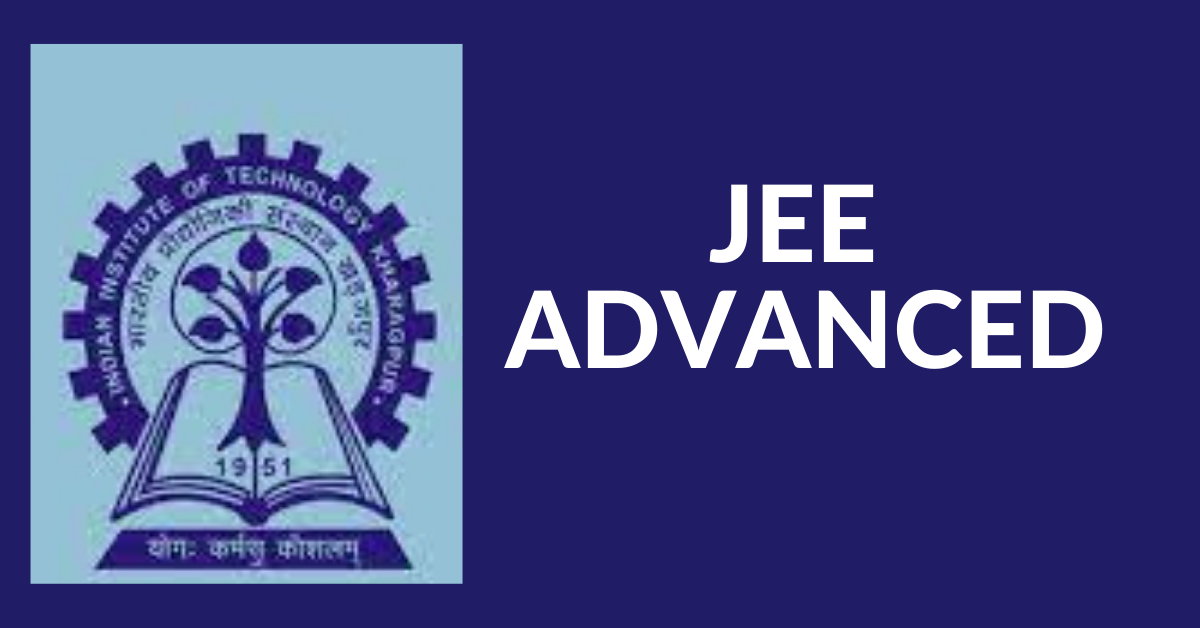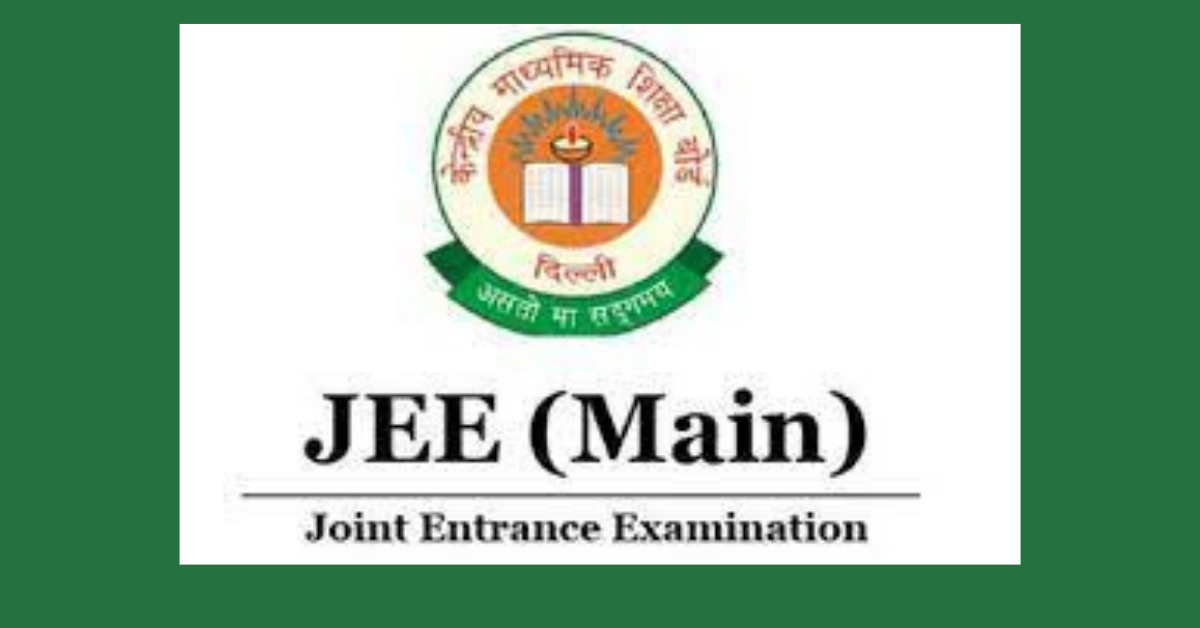JEE ADVANCED : An Ultimate and Free Guide For 2022
JEE ADVANCED
Joint Entrance Examination (JEE) is an all-India engineering entrance examination conducted with the sole purpose of admission to different engineering colleges in India. The Ministry of Human Resource Development (MHRD) and Central Board of Secondary Education (CBSE), New Delhi has introduced this National Level Entrance Examination known as Joint Entrance Examination, for admission to various engineering colleges in India.
This examination was conducted by the Central Board of Secondary Education (CBSE) till 2018. From 2019, the responsibility of the conduction of the examination was vested to National Testing Agency (NTA).
The examination comprises of two phases- JEE Mains and JEE Advanced. JEE Mains was replaced by the All India Engineering Entrance Examination (AIEEE) and JEE Advanced was replaced by IIT-JEE Entrance Exam. The main aim of this exam was to reduce the strain of the students for appearing in multiple entrance exams.
Every year more than 25,000 engineering and architecture seats are filled through the score of the JEE Exam.
Joint Entrance Examination Advanced (JEE Advanced): This is a national-level engineering entrance examination conducted annually for admission to the Indian Institute of Technology (IIT). Formerly, JEE Advanced was known as the Indian Institute of Technology- Joint Entrance Examination (IIT-JEE).
It is conducted by one of the seven zonal IITs, namely IIT Kharagpur, IIT Delhi, IIT Bombay, IIT Madras, and IIT Guwahati under the guidance of the Joint Admission Board (JAB). Other Universities like the Rajiv Gandhi Institute of Petroleum Technology, the Indian Institute of Science Education and Research (IISERs), and the Indian School of Science also accept the score of JEE Advanced for admission.
Candidates can get enrolled in the following courses through the JEE Advanced exam :
| Name of the course | Degree | Duration |
| Bachelor of Technology | B.Tech. | 4 years |
| Bachelor of Science | BS | 4 years |
| Bachelor of Architecture | B.Arch. | 5 years |
| Dual Degree Bachelor of Technology & Master of Technology | Dual Degree B.Tech. -M.Tech. | 5 years |
| Dual Degree Bachelor of Science & Master of Science | Dual Degree B.S.-M.S. | 5 years |
| Integrated Master of Technology | Integrated M.Tech. | 5 years |
| Integrated Master of Science | Integrated M.Sc. | 5 years |
JEE ADVANCED EXAM HIGHLIGHTS
| Exam Name | Joint Entrance Examination Advanced (JEE Advanced) |
| Conducted By | IIT Delhi |
| Counselling Authority | JoSAA |
| Exam Level | National |
| Mode of Exam | Computer-based (Online) |
| Frequency | Once a year |
| Language | English & Hindi |
| Type of Questions | Objective |
| Official Website | http://jeeadv.ac.in/index.php |
JEE Advanced Exam Proposed Month
| JEE ADVANCED EXAM DATES | |
| Event | Tentative Month |
| JEE Advanced Exam Notification | April |
| JEE Advanced Exam Admit Card | August |
| JEE Advanced Exam Date | September |
| JEE Advanced Exam Result | September |
| Architecture Aptitude Test (AAT) | September |
| Architecture Aptitude Test (AAT) Result | September |

JEE Advanced Exam Eligibility Criteria
1. Nationality
Indian citizens, Overseas citizens of India (OCI), Persons of Indian Origin (PIO), and Foreign Nationals can apply for JEE Advanced Exam.
Foreign Nationals: Any candidate appearing for the JEE Advanced exam, who are not citizens of India by birth or naturalized are treated as foreign nationals. Only 10% of the total seats in each course are allotted to them. They are not allowed to write JEE Mains exam, they can directly apply for JEE Advanced Exam.
2. Performance in JEE Mains Exam
Candidates who fall in the rank list up to 2,50,000 in JEE Mains Exam across all the categories are eligible to apply for JEE Advanced Exam. The percentage of the admission for different categories are given below :
| Category | Percentage of Admission |
| General Category | 46.5% |
| General EWS | 4% |
| OBC-NCL Candidates | 27% |
| SC Candidates | 15% |
| ST Candidates | 7.5% |
| PWD Candidates | Horizontal reservation of 5% in all the above categories. |
Note : Foreign Candidates are Not applicable as they are not allowed to write JEE Main Exam.
3. Age Limit
| Age limit for Indian National | Age limit for Foreign National |
| Candidates should not be born on or after October 1, 1995. For reserved categories, 5 years of relaxation is fixed. | Candidates should not be born on or after October 1, 1995. In countries where a minimum stint in the armed forces (or allied) for a certain period is mandatory before /after Class XII or equivalent exam, the candidate is given a relaxation of one year. No relaxation for any categories. |
4. Performance in Class 12th Exam
Candidates have to fulfill any one of the criteria given below :
| Indian National | Foreign National |
| Candidates should secure a minimum of 75% marks in aggregate in class 12th or equivalent. For SC/ST/PWD the aggregate is 65% | Candidates should secure a minimum of 75% marks in aggregate in class 12th or equivalent. |
| Candidates should be within the top 20 percentile of the successful candidates in class 12th or equivalent board examination. | Candidates should be within the top 20 percentile of the successful candidates in class 12th or equivalent examination. |
| Following subjects’ marks are calculated for aggregate marks:
1. Physics 2. Chemistry 3. Mathematics 4. Language (If more than one language is taken, then the language with higher marks will be considered) 5. Any other subject other than the above four will be considered (the subject with the highest marks) |
Following subjects’ marks are calculated for aggregate marks:
1. Physics 2. Chemistry 3. Mathematics 4. Language (If more than one language is taken, then the language with higher marks will be considered) Any other subject other than the above four will be considered (the subject with the highest marks) |
5. Number of Attempts
| Number of Attempts for Indian National | Number of Attempts for Foreign National |
| Candidates can appear for JEE Advanced Exam a maximum of two times in two consecutive years. | Candidates can appear for JEE Advanced Exam a maximum of two times in consecutive years. |
Earlier admission at IITs and ISM
| Earlier admission at IITs and ISM for Indian National | Earlier admission at IITs for Foreign National |
| Candidates should not be admitted to IIT irrespective of whether the candidate has continued in the program OR accepted a seat in IIT by reporting at the reporting center | Candidates should not be admitted to IIT irrespective of whether the candidate has continued in the program OR accepted a seat in IIT by reporting at the reporting center |
| Candidates whose admission at any of the IIT has been canceled after joining IIT are not eligible to apply for JEE Advanced. | Candidates whose admission at any of the IIT has been canceled after joining IIT are not eligible to apply for JEE Advanced. |
| Candidates who have paid the acceptance fees, but did not report at any of the reporting centers OR, withdrew before the last round of seat allocation OR, canceled their seat before the last round of seat allotment is eligible to apply for JEE Advanced Exam. | Candidates who have paid the acceptance fees, but did not report at any of the reporting centers OR, withdrew before the last round of seat allocation OR, canceled their seat before the last round of seat allotment is eligible to apply for JEE Advanced Exam. |
JEE ADVANCED EXAM PATTERN
Following are some of the highlights of the exam pattern of JEE Advanced.
- This is a computer-based national-level exam.
- It consists of two compulsory papers- Paper-1 & Paper 2.
- Each paper has three sub-sections -Physics, Chemistry, and Mathematics.
- The question paper will be MCQ, numerical, and lists match in nature.
- The exam is in both Hindi & English. Candidates can select or switch any of the languages during the examination
- There are some questions with more than one correct answer option, for those questions the candidate must select all the correct options to get full marks. Partial marks are awarded if one or a few correct options are selected. Zero marks will be awarded if the question is not attempted.
- Some questions are awarded negative marks for incorrect answers.
- Candidates can find the details of the marking schemes in the questions paper.
| JEE ADVANCED PAPER -1 EXAM PATTERN | |||
| Section | Question Type | Number of Questions | Maximum Marks |
| Section 1 | MCQ with one or more correct answer | 6 | 24 |
| Section 2 | Numerical value answer type questions | 8 | 24 |
| Section 3 | Paragraph based questions (2-Paragraphs, each having 2 MCQ with 2 correct answers only | 4 | 12 |
|
JEE ADVANCED PAPER -2 EXAM PATTERN |
|||
| Section | Question Type | Number of Questions | Maximum Marks |
| Section 1 | MCQ with one or more correct answer | 6 | 24 |
| Section 2 | Numerical value answer type questions | 8 | 24 |
| Section 3 | Matching type questions with 4 options | 4 | 12 |
| JEE ADVANCED MARKING SCHEME PAPER-1 | |||||
| Question Type | Total Questions | Full Marks | Partial Marks | Negative Marks | Maximum Marks |
| MCQs with 4 options (with one or more correct answers) | 6 | +4 if all the correct answers are chosen | +3 if all four options are correct but only three options are chosen
+2 if three or more options are correct but only two options are chosen, both the options must be correct. +1 if two or more options are correct but only one option is chosen, and it must be correct |
-2 (in all other cases) | 24 |
| Numerical value answer type questions | 8 | +3 if only correct numerical value is given | 24 | ||
| Paragraph based questions (2-Paragraphs, each having 2 MCQs with 2 correct answers only | 4 | +3 if only correct answer is selected | -1 in all other cases | 12 | |
|
JEE ADVANCED MARKING SCHEME PAPER-2 |
|||||
| MCQs with 4 options (with one or more correct answers) | 6 | +4 if all the correct answers are chosen | +3 if all four options are correct but only three options are chosen
+2 if three or more options are correct but only two options are chosen, both the options must be correct. +1 if two or more options are correct but only one option is chosen, and it must be correct |
-2 (in all other cases) | 24 |
| Numerical value answer type questions | 8 | +3 if only correct numerical value is given | 24 | ||
| Matching type (List 1 and List 2) questions with 4 options | 4 | +3 if only correct answer is selected | -1 in all other cases | 12 | |
JEE Advanced Test Location
| JEE Advanced Test Location for Indian National | JEE Advanced Test Location for Foreign National |
| Zones – IIT Bombay, IIT Madras, IIT Delhi, IIT Guwahati, IIT Kanpur, IIT Kharagpur, and IIT Roorkee | JEE Advanced exam is held in Dhaka (Bangladesh), Dubai (UAE), Kathmandu (Nepal), Singapore, and San Francisco, California (USA) |
Note: Successful foreign candidates, interested in B.Arch. program are required to come to one of the Zonal IITs to write the Architecture Aptitude Test for B.Arch. program.
List of colleges participating: Apart from IITs, nine other top institutes offer admission to their colleges through JEE Advanced score.
List of Top Nine Institutes accepting JEE Advanced Score
- Indian Institute of Science (IISc Bangalore)
- Indian Institute of Science Education and Research (IISER Bhopal)
- Indian Institute of Science Education and Research (IISER Kolkata)
- Indian Institute of Science Education and Research (IISER Mohali)
- Indian Institute of Science Education and Research (IISER Thiruvananthapuram)
- Indian Institute of Science Education and Research (IISER Pune)
- Indian Institute of Space Science and Technology (IIST Thiruvananthapuram)
- Rajiv Gandhi Institute of Petroleum Technology (RGIPT or IIT Jais Rae Bareli)
- Indian Institute of Petroleum and Energy (IIPE Vishakhapatnam)
| List of IITs accepting JEE Advanced Score | |||||
| Name | Abbreviation | Establishment | State | NIFR Rank | No of Seats |
| IIT Madras | IITM | 1959 | Tamil Nadu | 1 | 505 |
| IIT Delhi | IITD | 1961 | Delhi | 2 | 799 |
| IIT Bombay | IITB | 1958 | Maharashtra | 3 | 778 |
| IIT Kanpur | IITK | 1959 | Uttar Pradesh | 4 | 690 |
| IIT Kharagpur | IITKGP | 1951 | West Bengal | 5 | 713 |
| IIT Roorkee | IITR | 2001 | Uttarakhand | 6 | 879 |
| IIT Guwahati | IITG | 1994 | Assam | 7 | 702 |
| IIT Hyderabad | IITH | 2008 | Telangana | 8 | 294 |
| IIT Indore | IITI | 2009 | Madhya Pradesh | 10 | 275 |
| IIT BHU (Varanasi) | IIT (BHU) | 2012 | Uttar Pradesh | 11 | 876 |
| IIT Dhanbad | IIT (ISM) | 2016 | Jharkhand | 12 | 919 |
| IIT Bhubaneswar | IITBBS | 2008 | Odisha | 22 | 273 |
| IIT Gandhinagar | IITGN | 2008 | Gujarat | 24 | 194 |
| IIT Ropar | IITRPR | 2008 | Punjab | 25 | 297 |
| IIT Patna | IITP | 2008 | Bihar | 26 | 250 |
| IIT Mandi | IITMandi | 2009 | Himachal Pradesh | 31 | 200 |
| IIT Jodhpur | IITJ | 2008 | Rajasthan | 53 | 247 |
| IIT Tirupati | IITTP | 2015 | Andhra Pradesh | Not Ranked | 180 |
| IIT Bhilai | IITBH | 2016 | Chhattisgarh | Not Ranked | 126 |
| IIT Goa | IIT Goa | 2016 | Goa | Not Ranked | 97 |
| IIT Jammu | IIT JMU | 2016 | Jammu & Kashmir | Not Ranked | 154 |
| IIT Dharwad | IITDH | 2016 | Karnataka | Not Ranked | 126 |
| IIT Palakkad | IITPKD | 2015 | Kerala | Not Ranked | 260 |
Result of JEE Advanced: The result of the JEE Advanced exam can be downloaded by visiting the official website https://jeeadv.ac.in/
Getting into a good college is a dream, you need to plan it before that.
Career Planning plays an important role in shaping your career, so is the planning to choose the best suitable B-School for yourself. You need to focus on various aspects before jumping into a final decision.
Career path analysis helps you in getting the best road map. Get your career assessment test by appearing for the free student profiling process. https://eduxact.edumilestones.com/

Click the link below and get an exhaustive career report and book for a free counseling session. For Studying abroad in 15000+ across 20+ Countries visit the mentioned link.
Click: Start Study Abroad Profiling to get access to 15000+ Universities across 20+ Countries
Please share your valuable inputs regarding the article. Also, help me develop other information guides by giving your suggestions.
You can comment in the section below for sharing your thoughts.

JEE ADVANCED : An Ultimate and Free Guide For 2022 Read More »


